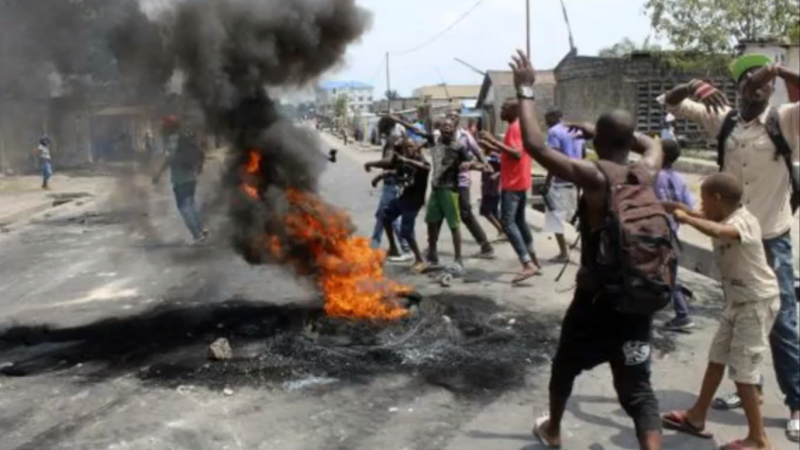
On January 19, Congolese police in Kinshasa violently dispersed protesters opposed to the revision of the electoral law that would allow Joseph Kabila to remain in power. 35 protesters, most of them students, and 1 policeman were killed. The city of Goma was also affected by clashes that saw the arrest of many among the thousands of protesters. Kabila seeks to indirectly extend his term, which is coming to an end next year, by organizing a census that would take 3 years to complete. Kabila is barred by the constitution from seeking a third term, however his term would be automatically prolonged until the census is completed. Shortly after the protests, mobile internet and texting were shut down briefly as well as most schools in the city. Some dormitories were set ablaze during the clashes.
The Kabila administration argues that a census is necessary prior to issuing the electoral lists for the presidential and parliamentary elections of 2016. The very influential Catholic Church has backed the opposition request to forego any revision to the planned electoral calendar. The proposed revision is currently under review at the Senate.
The following citizen video taken by Kininfos on January 19 depicts a chaotic scene in the capital city as protesters try to block the streets:
Paul Nsapu, secretary general for Africa of the International Federation for Human Rights in Kinshasa, is appalled by the excessive measures taken by the government:
For the most part these people were killed while they were advancing to protest. We didn't expect the government to act in the same way as a rebel group.
The following video provides a recap of the events over the past week :
Ida Sawyer, DR Congo Researcher for Human Rights Watch, adds that the repression is in contradiction with the rights of citizens to express themselves:
Congolese security forces have fired into crowds of demonstrators with deadly results. People should be allowed to express their views and peacefully protest without the fear of being killed or arrested
CPJ's Africa Program Coordinator, Sue Valentine argues that shutting down internet and SMS communication in the country is an infringement on basic Congolese rights:
By shutting down internet and messaging services and blocking websites, Congolese authorities are denying citizens their fundamental right to communicate and to receive and impart information
Jason Stearns explains why these protests have a different feel on his Congo Siasa blog:
Students are now playing a much more important role than in 2011. The epicenter of the protests has been at the University of Kinshasa (UNIKIN), which has been stormed by presidential guards and police. There are over 30,000 students at the university, and hundreds of thousands of students across the country. In Bukavu, too, university students were at the forefront of demonstrations organized yesterday. In the past, the political fervor of university campuses has often been tempered when student bodies have been co-opted by political elites. This time that seems to be different.
Joseph Kabila took power in 2001 following the assassination of his father Laurent Kabila. Under Congolese law, the Congolese National Police are responsible for providing security and ensuring public order during demonstrations. The national police chief can call on the regular Congolese army to provide assistance if police forces are overwhelmed.







3 comments